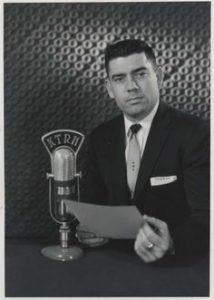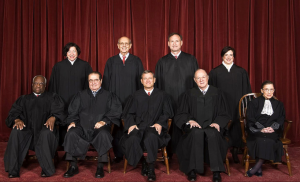Traveling to New York state generally leads a person to two destinations, the Big Apple with its museums, theatres and night life, or the other side of the state which offers a world famous Niagara Falls and revitalized Buffalo waterfront, but there is a third option that is worth checking out.
Nestled in the middle of the state is a region called the Finger Lakes. The Finger Lakes consist of 11 parallel lakes looking like the fingers of a pair of outstretched hands. Formed during the ice age, two of the lakes (Seneca and Cayuga) are among the deepest in North America and have bottoms below sea level.
There a lot’s of things to do and see. Everything from world-class museums, spectacular parks, wine tours and even auto racing.
 No visit would be complete without seeing the Corning Museum of Glass. The museum was a gift from the Corning Glass Works to the nation to celebrate the company’s 100th anniversary. There you’ll find an extensive collection of more than 45,000 pieces of classic and contemporary glass from all over the world. There’s demonstrations of live glass blowing, interactive stations for young and old alike and even a chance to create your own piece art using different glass making techniques.
No visit would be complete without seeing the Corning Museum of Glass. The museum was a gift from the Corning Glass Works to the nation to celebrate the company’s 100th anniversary. There you’ll find an extensive collection of more than 45,000 pieces of classic and contemporary glass from all over the world. There’s demonstrations of live glass blowing, interactive stations for young and old alike and even a chance to create your own piece art using different glass making techniques.
Just up the road you’ll find the tiny hamlet of Watkins Glenn. Known for its Grand Prix racing, Watkins Glenn International is the birthplace of American Road Racing. The track hosts the NASCAR Sprint Cup Series, Sahlen’s Six Hours of The Glen, and the U.S. Vintage Grand Prix. For those really wanting the full experience, take advantage of Drive The Glenn. You’ll get a real sense of what it’s like to drive the 3.4 mile circuit.
 If racing isn’t your thing (or even if it is), no visit to Watkins Glenn would be complete without stopping by the Watkins Glenn State Park. Visitors can stroll up a meandering gorge path that climbs 400 feet and passes by 19 waterfalls along the way. You might feel like you are in a Lord of the Rings movie as the trails winds over and under waterfalls with breath taking views at every corner. There is no price for admission and parking is nominal, which makes this stop a real value. The visit can be done in a couple of hours, and the park offers camping for those interested in exploring more of what the park has to offer.
If racing isn’t your thing (or even if it is), no visit to Watkins Glenn would be complete without stopping by the Watkins Glenn State Park. Visitors can stroll up a meandering gorge path that climbs 400 feet and passes by 19 waterfalls along the way. You might feel like you are in a Lord of the Rings movie as the trails winds over and under waterfalls with breath taking views at every corner. There is no price for admission and parking is nominal, which makes this stop a real value. The visit can be done in a couple of hours, and the park offers camping for those interested in exploring more of what the park has to offer.
All of this walking and exploring might make you thirsty which is why we’ve saved the best for last, the wine tours. The Finger Lakes are home to three unique wine trails, each offering their own different experiences. Founded in 1986, the Seneca Lake Wine Trail is one of the largest in the eastern U.S. and features 30 wineries all waiting to be explored. Seneca Lake’s natural combination of deep water (at 632 feet it is the deepest of the Finger Lakes) and sloping hillsides provides the ideal micro-climate for grape growing.
 There is really no wrong way to start. If you need a couple of suggestions, Atwater Estate Vineyards, Hazlitt 1852 Vineyards and Wagner Vineyards all offer excellent varieties of local wines including Riesling, Chardonnay, Cabernet Franc and Pinot Noir. Most vineyards make available flights of wine for $5. Pick 5 different labels off the menu for a quick taste of the best wines this region has to offer.
There is really no wrong way to start. If you need a couple of suggestions, Atwater Estate Vineyards, Hazlitt 1852 Vineyards and Wagner Vineyards all offer excellent varieties of local wines including Riesling, Chardonnay, Cabernet Franc and Pinot Noir. Most vineyards make available flights of wine for $5. Pick 5 different labels off the menu for a quick taste of the best wines this region has to offer.
There is also a café next to the Wagner Vineyards called the Ginny Lee that offers a variety of comfort foods including a local Cheese Board that features a mix of locally sourced cheeses & assorted crackers. You can also add Charcuterie & dried meats that will be sure pair well with a bottle from next door all while enjoying the panoramic views overlooking Lake Seneca from the deck.
Living in Houston, you might be worried about how to get to the area, but driving to Corning from the Buffalo airport takes a little over two hours which is almost the time it takes to get from The Woodlands to Galveston. Once you arrive, you’ll find plenty of hotels, bed & breakfasts, vacation rentals and camp grounds to help you spend some quality time in a region of the world that still knows how to have a good time.
 How bad has politics gotten? There are now dating apps that help you locate someone who follows your political leaning.
How bad has politics gotten? There are now dating apps that help you locate someone who follows your political leaning.
















